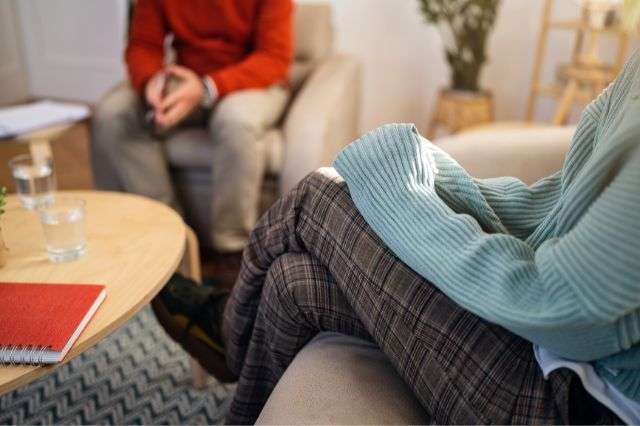Before discussing the treatments for drug abuse, let’s discuss the symptoms of substance abuse, so you can get yourself or a loved one the help needed. A substance use disorder may impact someone’s relationships, health, and functioning at school or work. The most typical substance use disorders include drug addiction (stimulants, opioids, hallucinogens), alcoholism, and smoking (cannabis, tobacco).
Substance abuse symptoms vary; however, may include:
- Withdrawal symptoms after not using
- Using more over a period of time
- Using in risky situations
- Uncontrollable cravings
- Spending lots of time acquiring and using the substance
- Issues controlling use if tempted
- Developing a tolerance
- Ongoing use despite the negative impact on life
People who have complex illnesses and mental health disorders, like bipolar disorder, depression, PTSD (post-traumatic stress disorder), HIV/AIDS, or cancer, might have problems with substance abuse. Stopping is not just “mind over matter.” Drug addiction and alcoholism require dedicated, compassionate care to completely overcome the disorder.
What Are the Types of Non-invasive Treatments for Drug Abuse?
Some types of non-invasive treatments for drug abuse include:
Stress Management and Biofeedback
Biofeedback is a treatment that trains the mind to control the physical impact of stress or health condition, which includes blood pressure, brain activity, body temperature, muscle tension, and much more. Biofeedback involves the use of electrodes (sensors) placed on the body and special therapies that are taught by a trained biofeedback therapist.
ECT (Electroconvulsive Therapy)
Electroconvulsive therapy uses a tiny bit of electric current that’s believed to reverse the symptoms of mental disorders. This current, which is delivered through electrodes (sensors) on the scalp, causes controlled, brief seizures, changing brain chemistry. Electroconvulsive therapy requires 6 – 12 treatments, conducted in an outpatient setting using general anesthesia.
Psychotherapy
Talk therapy, or psychotherapy, explores how health conditions affect your emotions, thoughts, mood, and behavior, and how you can cope. There are several forms of psychotherapy, which include CBT (cognitive-behavioral therapy) which changes your behavior or thinking, and IPT (interpersonal psychotherapy) which improves your relationships. It’s offered individually or in groups.
Psychopharmacology
This is the study of the use of medicine in the treatment of mental health disorders. A psychiatrist prescribes medicine that improves mental health disorder symptoms. Common medicines include one, or a combination of, mood stabilizers, antidepressants, anti-anxiety medicines, antipsychotic drugs, and stimulants. Psychiatrists study these medications to figure out how they work and impact the body and skillfully apply that knowledge in their day-to-day practice.
RTMS (Repetitive Transcranial Magnetic Stimulation)
This non-invasive type of brain stimulation treats anxiety and depression that doesn’t react well to psychotherapy (talk therapy) or medication. rTMS involves a head coil that generates magnetic pulses to the brain cells. Those pulses change certain regions in the brain that are responsible for memory, mood, addiction, etc. It’s done without anesthetics, in regular outpatient sessions for 4 – 6 weeks.
How Are Withdrawal Symptoms Handled Through These Processes?
Acupuncture, massage therapy, chiropractic care, and other options of alternative medicine have shown a lot of promise in assisting in managing cravings and withdrawal symptoms while in detox. Both massage therapy and chiropractic care use touch to relieve tension and manipulate muscles, which may help to relieve stress and physical discomfort. Acupuncture involves placing needles into specific acupuncture points inside the body to reestablish circulation, balance, and blood flow in order to promote recovery. According to the Natural News, auricular acupuncture, or ear acupuncture is commonly used and has been shown to be beneficial in the treatment of addiction. Holistic therapy techniques are frequently used as adjunctive therapies along with traditional ones.
Other ways to manage withdrawal symptoms or post-acute withdrawal syndrome include:
- Attending a medical detoxification program
- Exercising regularly
- Eating nutritious and balanced meals
- Staying hydrated
- Sticking with a structured sleep routine
- Joining a support group
- Stretching often, and considering mindfulness meditation and/or yoga
- Regularly communicating with a counselor, therapist, loved one, or family member
- Participating in relaxation techniques
Picking the Best Facility to Manage Drug Abuse
If you are experiencing drug addiction, know that you are not alone. Addiction and drug abuse have become epidemics. Rather than concealing the addiction in shame, guilt, and more drug use, contact Pacific Bay Recovery for the help you need. Drug addiction treatment that San Diego trusts may be discovered through Pacific Bay Recovery.
Whether you have struggled with marijuana, cocaine, opioid, heroin, or other substance dependence, withdrawal involves a process our team can help to navigate. Getting help will keep you safe and comfortable. At Pacific Bay Recovery, we offer treatment, medical detox, and continuous care in a supportive, safe space. Call (619) 350-8193 now!


